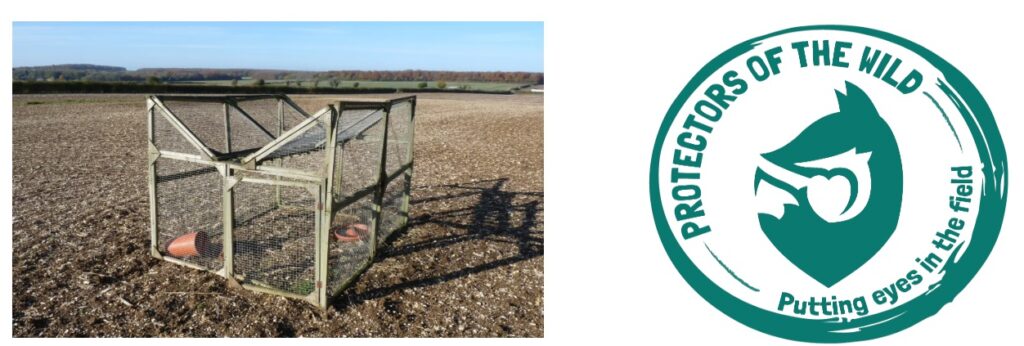The Scottish Society for the Prevention of Cruelty to Animals (Scottish SPCA) is reporting that former gamekeeper (turned labourer, apparently) Alexander Hamilton was sentenced to a five-year ban from owning and keeping animals and was given 100 hours of community service at Edinburgh Sheriff Court on Tuesday, 5 March.
64-year-old Hamilton pled guilty to trapping magpies in illegal traps in his garden. The birds were distressed and also deprived of adequate food water and shelter.
The Scottish SPCA visited Hamilton’s house in July 2022 and reported Hamilton to the Crown Office using their powers under the Animal Health & Welfare (Scotland) Act 2006.
In an online press-release Scottish SPCA Special Investigations Unit Chief Inspector Mark Rafferty, said,
“On 29 July 2022 our animal helpline received a call from a resident reporting two magpies caught in cages in the back garden of a neighbour.
“We attended that same day but found no one at home. On looking over the fence into the back garden, we observed a Larsen mate trap and two other cages. The two cages had no suitable shelter, food or water and no visible tag attached to them.
“Crow cage traps and Larsen traps are bird traps used to catch various territorial members of the crow family most commonly used by gamekeepers or sheep farmers.
“We attended later that day at the address and the occupier, Hamilton, let us into his garden. We found a dead magpie lying on the paving slabs in the back garden, just inside the gate.
“In the bottom corner of the garden, screened off from the rest of the garden by a large unsecured fencing panel, was an area where there were three traps.
“The first trap was a Larsen mate trap containing one Magpie. The bird was in a distressed state due to being confined within the trap and was in poor condition. This trap was specifically designed for the purpose of catching targeted species.
“Trap operators are responsible for traps carrying their Trap Registration Number and all traps used must only display a single tag or sign showing one NatureScot Trap Registration Number. These conditions were not being adhered to rendering this trap illegal.
“The second trap contained one magpie and there was also a cage containing a magpie in poor body condition.
“The magpie within this cage was distressed and managed to squeeze through the mesh on the floor of the cage and enter a space underneath the adjacent shed. The bird could be heard scraping and pecking at the wooden floor of the shed and was clearly distressed.
“The birds were released from the cages and the traps and were released back into the wild.”
Punishment doesn’t fit the crime
As a former gamekeeper Hamilton (who built the traps in his garden himself) should have been fully aware of the law. He also presumably knew that if anyone disagreed with his warped thinking on ‘predator control’, the consequences would probably be relatively trivial. And so it proved. The ban on keeping animals for five years would at least be something, but defending solicitor Paul Henderson (who memorably excused Hamilton’s cruelty and law-breaking as ‘a hobby’) asked for any animal ban imposed by the court to exclude two gun dogs that Hamilton owned.
Sadly, rather than take the dogs off him and have them rehomed, Sheriff Gillian Sharp agreed and enforced a ban with the exemption of his two dogs.
Congratulations to the Scottish SPCA who clearly did everything in their power to convict Hamilton, but this is not the strong message Protect the Wild would like to see being sent to wildlife criminals. As is so typical of offences like this the punishment doesn’t fit the crime, and an obviously cruel and ignorant man was shown leniency many will think he didn’t deserve.

Recognise, Record, Report
While it’s tempting to suggest that all ‘gamekeepers’ have an ingrained disrespect for wild animals (Hamilton reportedly killed “some of the birds by clubbing them over the head” which might suggest that empathy is not high on the list of job requirements), what this case really demonstrates is the importance of ‘getting involved’.
Without the intervention of the unnamed neighbour Hamilton may well still be ‘doing his bit for conservation’ by treating intelligent and sentient birds with the same care as the 17th century vivisectionists who believed animals couldn’t experience pain. While there’s no suggestion in the Scottish SPCA press release that the person who reported Hamilton knew the law, they clearly recognised suffering and wanted to help alleviate it.
As Special Investigations Unit Chief Inspector Mark Rafferty alluded, though, while Larsen traps and the like are (thanks to lobbying by the shooting industry and estate owners) still legal they must be used according to the law.
There are small differences in the laws that regulate trap use in Scotland and use in England and Wales which we detail on our Protectors of the Wild page on Cage Traps and the Law, but the general principles are covered by the Animal Welfare Act 2006 which states that “leaving an animal in a cage trap without food, water or shelter for a period of time, so causing it to suffer unnecessarily, may be an offence, especially if the period of time it was left untended exceeded that of any relevant licence conditions or guidelines.”
- It is always worth reporting what may be a wildlife crime: the perpetrator might well end up in court…

